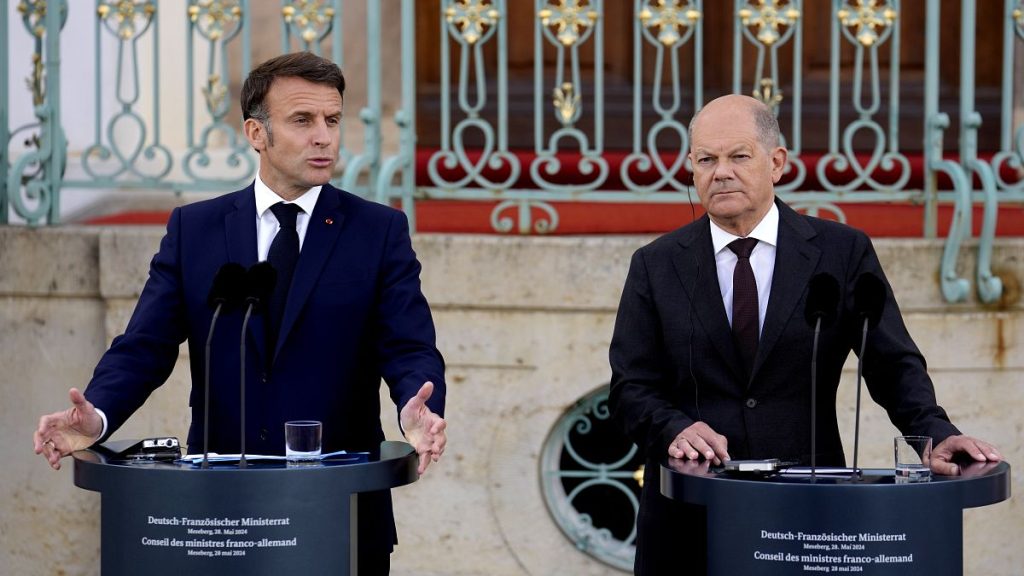German Chancellor Olaf Scholz and French President Emmanuel Macron expressed joint support for Ukraine during a recent meeting in Meseberg. Despite previous disagreements, Scholz shifted his stance on Ukraine’s use of Western weapons against Russian targets. He acknowledged Ukraine’s right to self-defense and stated that they could target military sites in Russia under international law. However, Germany still refused to provide long-range missiles to Ukraine, unlike France and the US. Russian President Vladimir Putin warned of “serious consequences” if Western countries allowed Ukraine to strike Russian targets.
The meeting between Scholz and Macron aimed to address various disagreements, including the development of an EU defense strategy and economic relationships with China and the US. Macron sought to reconcile differences with Berlin after they initiated a European anti-missile shield project without French involvement. Macron advocates for European independence in defense and protection against unfair competition from China and the US, while Scholz prioritizes transatlantic ties and trade relations with China. The leaders also aimed to present a united front amidst challenges from far-right parties in the upcoming European elections.
Chancellor Scholz’s evolving position on Ukraine reflects a turning point in German foreign policy as he expressed support for Ukraine’s right to self-defense. Despite concerns about avoiding direct conflict with Russia, Scholz acknowledged Ukraine’s ability to defend itself under international law. This shift in stance could have significant implications for the ongoing conflict in Eastern Europe, particularly in light of Russian opposition to Ukraine’s use of Western weapons against their military targets. The Franco-German meeting also highlighted efforts to bridge differences and present a united front in the face of challenges from far-right parties across Europe.
The meeting between Scholz and Macron underscored the importance of unity within the EU, particularly in addressing complex geopolitical issues such as the conflict in Ukraine. The leaders navigated disagreements over defense strategies and economic relationships to present a united front on critical issues affecting the region. The visit was significant in demonstrating solidarity amidst rising support for far-right parties in both Germany and France leading up to the European elections. By emphasizing the importance of European unity and cooperation, Scholz and Macron aimed to bolster support for pro-European parties and maintain stability in the face of political challenges.
The Franco-German meeting also highlighted the differing views on defense strategies and economic relationships within the EU, particularly in relation to China and the US. While Macron advocates for greater independence and protection against competition, Scholz emphasizes transatlantic ties and trade relations with China. These differing views underscore the complexity of navigating geopolitical challenges within the EU and the need for unity in addressing shared concerns. The leaders’ efforts to reconcile differences and present a united front send a powerful message of cooperation and solidarity amidst rising political tensions in the region.
Overall, the historic state visit between Scholz and Macron showcased the importance of unity and cooperation within the EU, particularly in addressing challenges such as the conflict in Ukraine and rising support for far-right parties. The leaders’ shift in stance on Ukraine’s right to self-defense marks a significant development in German foreign policy and reflects a growing recognition of the need to support Ukraine in the face of external threats. By emphasizing the importance of European unity and cooperation, Scholz and Macron sought to present a united front in addressing critical geopolitical issues affecting the region and maintaining stability amidst political challenges.


